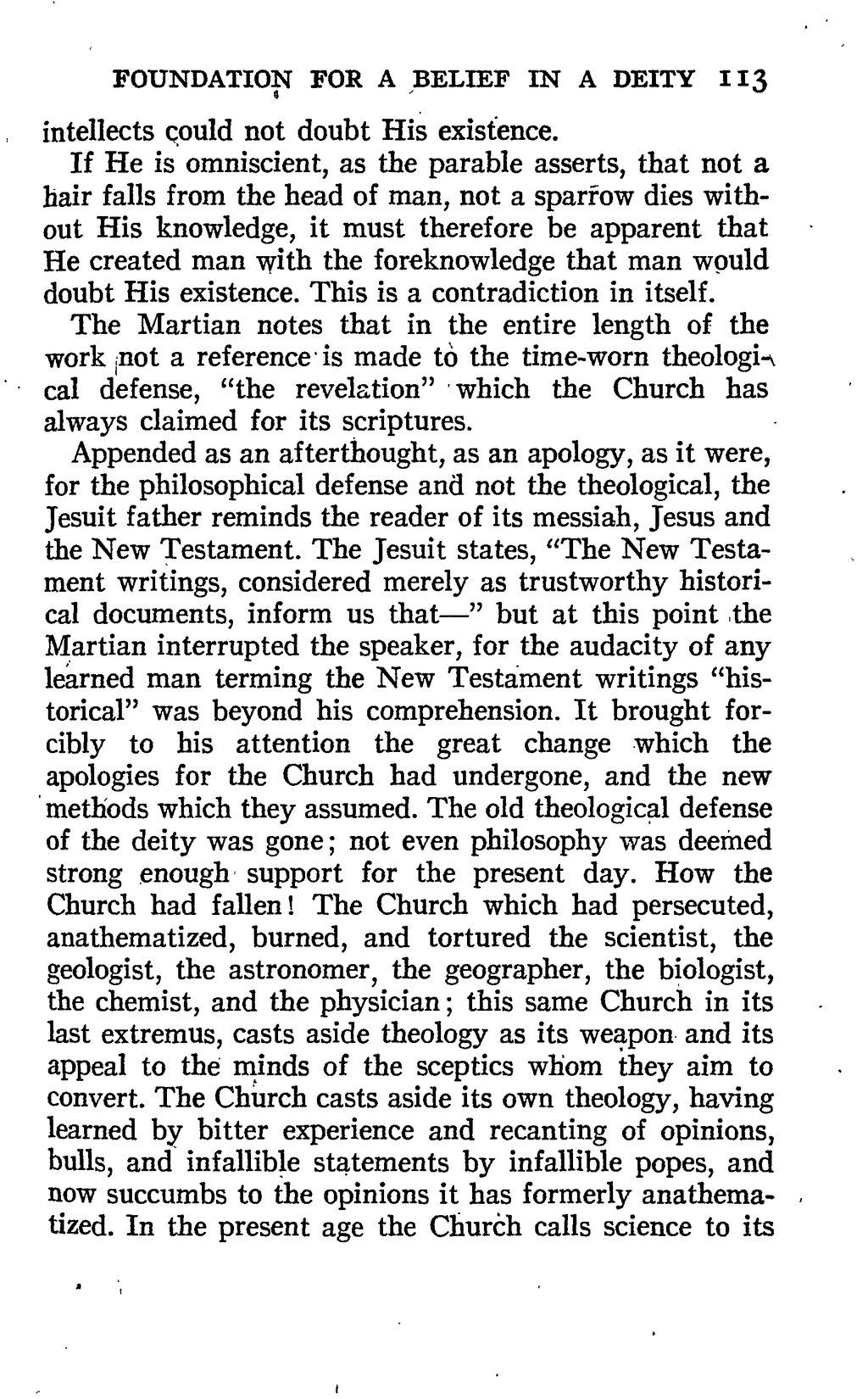intellects could not doubt His existence.
If He is omniscient, as the parable asserts, that not a hair falls from the head of man, not a sparrow dies without His knowledge, it must therefore be apparent that He created man with the foreknowledge that man would doubt His existence. This is a contradiction in itself.
The Martian notes that in the entire length of the work,not a reference is made to the time-worn theological defense, "the revelation" which the Church has always claimed for its scriptures.
Appended as an afterthought, as an apology, as it were, for the philosophical defense and not the theological, the Jesuit father reminds the reader of its messiah, Jesus and the New Testament. The Jesuit states, "The New Testament writings, considered merely as trustworthy historical documents, inform us that " but at this point the Martian interrupted the speaker, for the audacity of any learned man terming the New Testament writings "historical" was beyond his comprehension. It brought forcibly to his attention the great change which the apologies for the Church had undergone, and the new methods which they assumed. The old theological defense of the deity was gone; not even philosophy was deemed strong enough support for the present day. How the Church had fallen! The Church which had persecuted, anathematized, burned, and tortured the scientist, the geologist, the astronomer, the geographer, the biologist, the chemist, and the physician; this same Church in its last extremus, casts aside theology as its weapon and its appeal to the minds of the sceptics whom they aim to convert. The Church casts aside its own theology, having learned by bitter experience and recanting of opinions, bulls, and infallible statements by infallible popes, and now succumbs to the opinions it has formerly anathematized. In the present age the Church calls science to its
